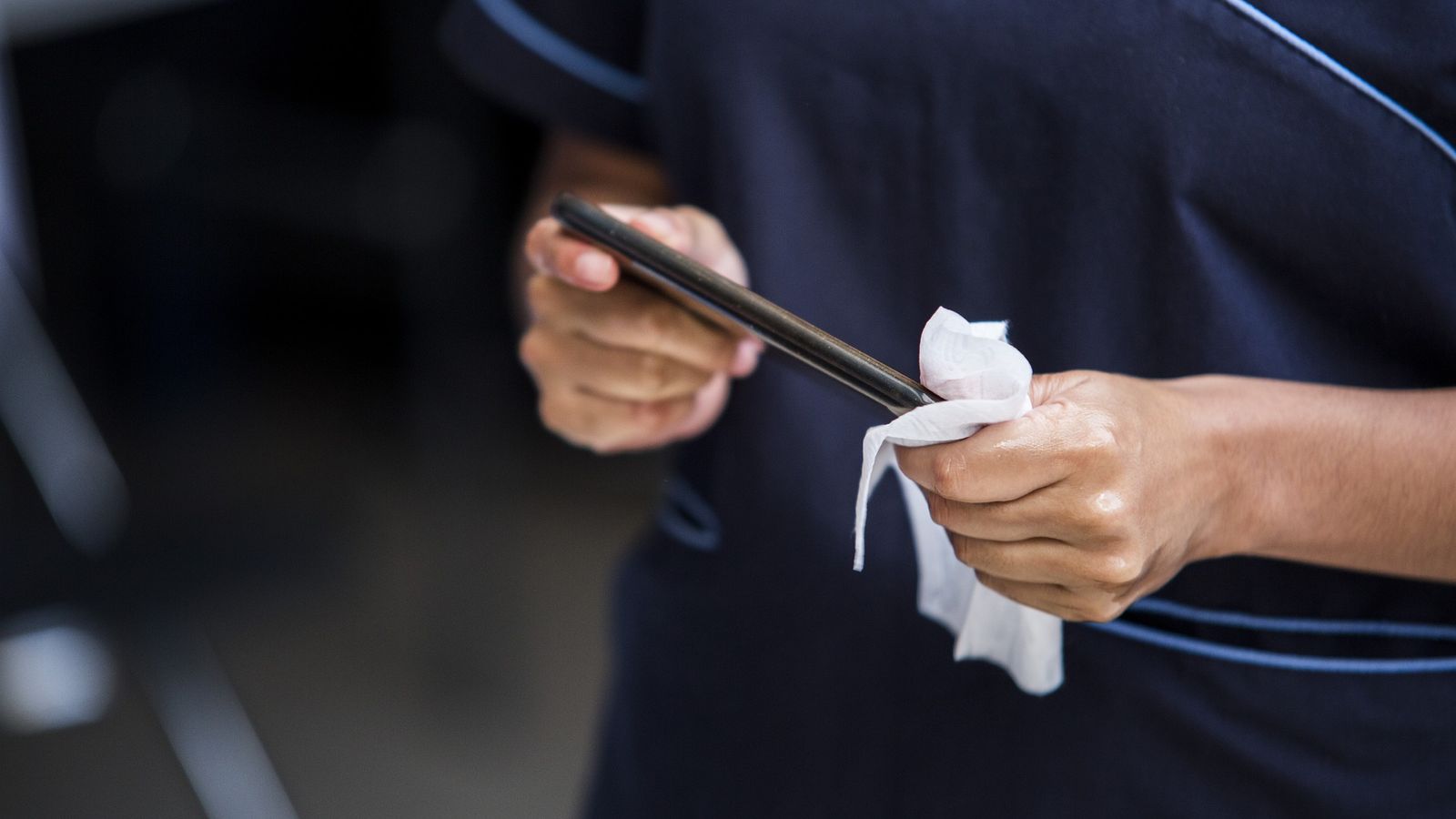The virus that causes COVID-19 can survive on surfaces including mobile phones and banknotes for up to four weeks, according to new research.
Australia’s national science agency CSIRO found that Sars-CoV-2 was “extremely robust” at 20C (68F), or room temperature.
The study also found that the virus survived longer at lower temperatures.
Live updates on coronavirus from UK and around world
Researchers said the virus survived longer on smooth surfaces such as glass and stainless steel compared with porous surfaces such as cotton.
They also found the virus survived longer on paper banknotes than plastic banknotes.
A previous study in The Lancet in April found that SARS-Cov-2 could not be detected on glass or banknotes after four days or seven days for stainless steel.
The research from CSIRO found the virus was surviving for 28 days.
:: Subscribe to the Daily podcast on Apple Podcasts, Google Podcasts, Spotify, Spreaker
However, the research was conducted in a dark area which negates the effects of UV light, as studies have shown direct sunlight can rapidly inactivate the virus.
Dr Debbie Eagles, deputy director of the Australian Centre for Disease Preparedness, said: “Our results show that SARS-CoV-2 can remain infectious on surfaces for long periods of time, reinforcing the need for good practices such as regular handwashing and cleaning surfaces.
“At 20 degrees Celsius, which is about room temperature, we found that the virus was extremely robust, surviving for 28 days on smooth surfaces such as glass found on mobile phone screens and plastic banknotes.
“For context, similar experiments for Influenza A have found that it survived on surfaces for 17 days, which highlights just how resilient SARS-CoV-2 is.”
There is uncertainty about surface transmission of the virus.
The virus is mostly transmitted when a person coughs, sneezes or talks.
Dr Eagles added: “While the precise role of surface transmission, the degree of surface contact and the amount of virus required for infection is yet to be determined, establishing how long this virus remains viable on surfaces is critical for developing risk mitigation strategies in high contact areas.”
CSIRO chief executive Dr Larry Marshall said its latest research builds on the national science agency’s other COVID-19 work such as vaccine testing.
He said: “Establishing how long the virus really remains viable on surfaces enables us to more accurately predict and mitigate its spread, and do a better job of protecting our people.”

